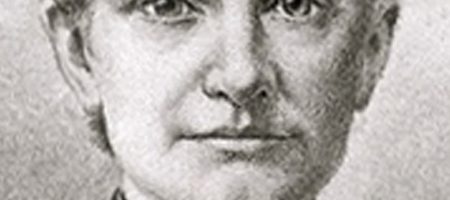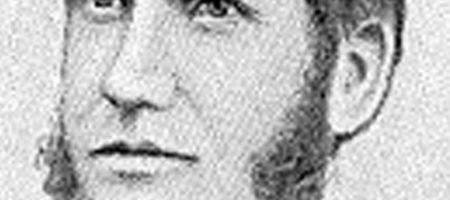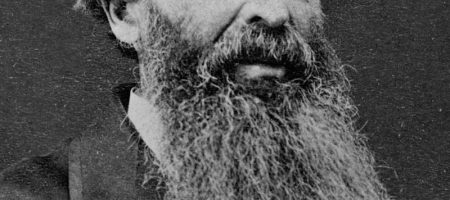Narcissa August 1847
August 23-1847
My Dear Parents:-I see I cannot finish my letter without interruptions, and long ones, too. Another resolution of the meeting was that husband see to getting houses built for the mothers of the mission families, so that they could spend the winter here for the sake of having the children attend school. This would relieve me greatly of having to board them as I have done.
Since I commenced this letter many changes have taken place, which entirely prostrate the plans and resolutions of the meeting. Mr. W. is unwilling to remove with his family this year, on account of Mrs. W. being in a state of pregnancy, which was known at the time of the meeting, but not made an objection. Mr. Eells and family must remain with them throughout the winter, and consequently will not need a house here as was expected. Mrs. S. and children expect to come and winter here unless circumstances prevent. Marcus has now gone to Vancouver on business to bring up the property of the mission and see to the occupancy of the Dalles station. We are unwilling to let it pass out of our hands and fall into the hands of Catholics. He expects to hire Mr. Hinman, as he has a wife now, and both are pious, to take the charge of the secular affairs of the station, and in case we can do no better, let Perrin (the little boy that was with us in Cuba, but now grown to be quite a young man), his nephew, spend the winter with Mr. Hinman, as he is very successful in speaking the language, and can read and talk to them a little. Perrin, with one of our good Indians and Mr. Hinman, we think, will do very well in keeping up the station until a missionary can be sent. Perrin also indulges a hope.
Husband has been absent more than two weeks and it will be three more probably before he returns.
For the last two weeks immigrants have been passing, probably 80 or 100 wagons have already passed and 1,000 are said to be on the road, besides the Mormons. Sixty have gone the southern route that proved so disastrous last year to all that went that way. I have heard that an individual passed us who had letters for us and others, so that we are deprived of hearing from our friends as soon as we otherwise should. It was just so last year. Mother’s letter was carried by the Dalles and brought up again after a week or two by Mr. Geiger and Mr. Littlejohn, who came up here on a visit. Mr. G. spent the winter and taught school. Mr. Littlejohn and family have gone home to the States; they started this spring and came here while I was absent at the meeting. I was very sorry not to see her. She was Adeline Saddler; I presume you knew her. She was very unwilling to leave the country, but her husband has become such an hypochondriac that there was no living with him in peace. He wanted to kill himself last winter. It is well for him that he has gone to the States, where he can be taken care of. Poor woman; she is disconsolate and sad, and greatly changed from what she used to be. It is difficult to define the cause of his malady. He seems to be very much like Mr. Munger, the individual we had here that became crazy, and at last caused his own death by driving two nails into one of his hands, and afterwards putting it into a hot fire until it was burnt to a crisp, as was supposed, to work a miracle.
I said in the commencement of my letter that I was expecting to see Jane and Edward this fall; but from those who have already passed we can hear nothing from them, notwithstanding they may be on the road, for among so many, it is not expected that all will be known to each other.
It is difficult to imagine what kind of a winter we shall have this winter, for it will not be possible for so many to all pass through the Cascade mountains into the Willamette this fall, even if they should succeed in getting through the Blue Mountains as far as here. From the Dalles on to the Willamette is considered the worst part of the route from the States to the end, that is, to the Willamette valley. We are not likely to be as well off for provisions this season as usual-our crops are not as abundant.
Poor people-those that are not able to get one, or pay for what they need-are those that will most likely wish to stop here, judging from the past; and connected with this, is a disposition not to work, at any rate, not more than they can help. The poor Indians are amazed at the overwhelming numbers of Americans coming into the country. They seem not to know what to make of it. Very many of the principal ones are dying, and some have been killed by other Indians, in going south into the region of California. The remaining ones seem attached to us, and cling to us the closer; cultivate their farms quite extensively, and do not wish to see any Sniapus (Americans) settle among them here; they are willing to have them spend the winter here, but in the spring they must all go on. They would be willing to have more missionaries stop and those devoted to their good. They expect that eventually this country will be settled by them, but they wish to see the Willamette filled up first.
We wish to employ a teacher for the winter. If J. and E. do not come, we must look out for some one among the immigrants. We should prefer an accomplished young lady from the Eastern States, if such could be found to teach the children of our families. Young ladies are greatly needed in this country as teachers-also female help of all kinds. Many more men than women come into the country. Almost every body has been sick in the Western States which is said to be the cause of so large influx this way. When I heard that dear brother Harvey was going to Virginia, I could not help desiring him to come this way. O, if he was here now to take our farm, how much better it would be for him and us, too; we need just such a man. I would that he would come and two or three others just like him, for their help is greatly needed. I wrote him to come, but do not know that he got my letter. Husband is wearing out fast; his heart and hands are so full all the time, that his brethren feel solicitous about him, but cannot help him; his benevolence is unbounded, and he often goes to the extent of his ability, and often beyond, in doing good to the Indians and white men.
It is probably not right for me to desire to have father and mother here; but still I cannot help thinking all the time. O, if they were here. God grant that they may live long to pray for their unworthy children among the Indians.
We hear that a monthly mail route is to be, or already is, established on the coast south-a steamer to take packages from Panama, that come across the Isthmus of Darien. I hope it will not be so difficult to hear from home as formerly. I intend to send this that way for an experiment. I send this by our man and John, one of the orphan boys, who go with two ox teams to the Dalles to bring up the threshing machine, cornsheller, ploughs for Indians, and other goods for the mission, also books for Mr. Rogers, the pious young man of whom I have spoken, that husband brings up in a boat from Vancouver.
Now I have the care of two additional boys for a year, who are left here by their fathers for the benefit of school; they are native half breeds. May the richest of heaven’s blessings ever rest upon my beloved father and mother.
From your ever affectionate daughter,
NARCISSA.




